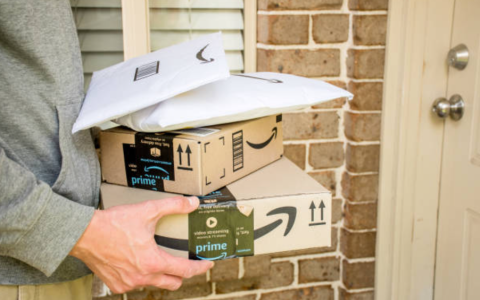Broken system could cost every Aussie more than you think, are you prepared?
By
Gian T
- Replies 0
If you’ve been feeling the pinch at the checkout, the bowser, and even when you’re waiting for a parcel to arrive at your door, you’re not alone.
The cost-of-living crisis is biting hard, and now, a new proposal could make things even tougher for every Australian—especially those of us who rely on online shopping, home deliveries, or simply want to keep our weekly budgets in check.
This week, the Federal Government’s Economic Reform Roundtable is considering a major shake-up: scrapping the fuel tax rebate for heavy freight trucks.
If you’re thinking, 'What’s that got to do with me?'—the answer is, quite a lot!
This rebate has long helped keep delivery costs down, allowing retailers to offer free or cheap shipping and for goods to move quickly across our vast country.
But if the rebate goes, the cost of fuel for trucks could jump by up to 20.3 cents per litre—an 11 per cent increase based on last year’s average prices.
That’s not just a headache for truckies and farmers; it’s a direct hit to the hip pocket of every Aussie who buys groceries, orders online, or depends on goods being delivered.
Let’s break it down: If the cost of getting goods from A to B goes up, retailers will have to make a choice.
They can either absorb the cost (unlikely, given how tight margins already are), or pass it on to us, the consumers. That could mean:
The push to scrap the rebate is coming from several directions. Teal independents like Kate Chaney, Allegra Spender, and Senator David Pocock are backing the move, as are the Greens, who hold significant sway in the Senate.
The Productivity Commission and the Grattan Institute have both voiced support, arguing that the current system is outdated and needs reform.
Their argument? The system is 'broken' and doesn’t reflect the true cost of road use and emissions.
But critics say this is the wrong time to pile more costs onto families and businesses already struggling to make ends meet.
Warren Clark, CEO of the National Road Association, didn’t mince words: 'The fuel tax system is broken and needs to be revamped. Measures like this will simply add to the increasing stress felt by the industry, and we’ll continue to see businesses being forced into administration. More importantly, it would increase the cost of living which will hurt everyone.'
He warned that the road freight sector is already under serious pressure, with rising costs and no real productivity gains in the last decade.
'A reversal of these benefits could ripple through the delivery system and into shoppers’ wallets,' he said.
For many over-60s, fixed incomes mean every extra dollar counts. Whether you’re ordering medication, gifts for the grandkids, or just trying to keep the pantry stocked, higher delivery costs and slower service could make life that little bit harder.
And let’s not forget—regional and rural Aussies, who already pay more for deliveries, could be hit hardest.
The cost-of-living crisis isn’t going away anytime soon, and changes like this could make things even tougher for all of us.
As always, the Seniors Discount Club is here to keep you informed, help you save, and make sure your voice is heard.

What do you think about the proposed changes to the fuel tax rebate? Have you felt the impact of rising delivery costs? Share your thoughts and tips in the comments below.
Read more: Young pollies want tax reform—but it’s the older Aussies who’ll pay for it
The cost-of-living crisis is biting hard, and now, a new proposal could make things even tougher for every Australian—especially those of us who rely on online shopping, home deliveries, or simply want to keep our weekly budgets in check.
This week, the Federal Government’s Economic Reform Roundtable is considering a major shake-up: scrapping the fuel tax rebate for heavy freight trucks.
If you’re thinking, 'What’s that got to do with me?'—the answer is, quite a lot!
This rebate has long helped keep delivery costs down, allowing retailers to offer free or cheap shipping and for goods to move quickly across our vast country.
But if the rebate goes, the cost of fuel for trucks could jump by up to 20.3 cents per litre—an 11 per cent increase based on last year’s average prices.
That’s not just a headache for truckies and farmers; it’s a direct hit to the hip pocket of every Aussie who buys groceries, orders online, or depends on goods being delivered.
Let’s break it down: If the cost of getting goods from A to B goes up, retailers will have to make a choice.
They can either absorb the cost (unlikely, given how tight margins already are), or pass it on to us, the consumers. That could mean:
- Free shipping becomes a thing of the past, or the minimum spend for free delivery goes up.
- Delivery times could get longer, as companies opt for slower, cheaper freight options.
- Everyday essentials—from skincare to sneakers, groceries to gadgets—could all see price hikes.
The push to scrap the rebate is coming from several directions. Teal independents like Kate Chaney, Allegra Spender, and Senator David Pocock are backing the move, as are the Greens, who hold significant sway in the Senate.
The Productivity Commission and the Grattan Institute have both voiced support, arguing that the current system is outdated and needs reform.
Their argument? The system is 'broken' and doesn’t reflect the true cost of road use and emissions.
But critics say this is the wrong time to pile more costs onto families and businesses already struggling to make ends meet.
Warren Clark, CEO of the National Road Association, didn’t mince words: 'The fuel tax system is broken and needs to be revamped. Measures like this will simply add to the increasing stress felt by the industry, and we’ll continue to see businesses being forced into administration. More importantly, it would increase the cost of living which will hurt everyone.'
He warned that the road freight sector is already under serious pressure, with rising costs and no real productivity gains in the last decade.
'A reversal of these benefits could ripple through the delivery system and into shoppers’ wallets,' he said.
For many over-60s, fixed incomes mean every extra dollar counts. Whether you’re ordering medication, gifts for the grandkids, or just trying to keep the pantry stocked, higher delivery costs and slower service could make life that little bit harder.
And let’s not forget—regional and rural Aussies, who already pay more for deliveries, could be hit hardest.
The cost-of-living crisis isn’t going away anytime soon, and changes like this could make things even tougher for all of us.
As always, the Seniors Discount Club is here to keep you informed, help you save, and make sure your voice is heard.
Key Takeaways
- Proposed changes to the fuel levy could see higher delivery costs and slower shipping times for online purchases, with free shipping options likely to become less common in Australia.
- Retailers may be forced to raise their free shipping thresholds or pass increased delivery expenses directly onto consumers, impacting the cost of everyday goods from skincare to sneakers.
- The potential fuel tax increase, supported by some MPs and the Greens, could add up to 20.3 cents per litre to diesel and petrol for freight trucks, an 11 per cent rise based on last year’s average prices.
- Industry leaders warn that axing the rebate would hit the trucking sector hard, risking higher costs of living for all Australians and putting more pressure on businesses already struggling with rising expenses.
Read more: Young pollies want tax reform—but it’s the older Aussies who’ll pay for it








